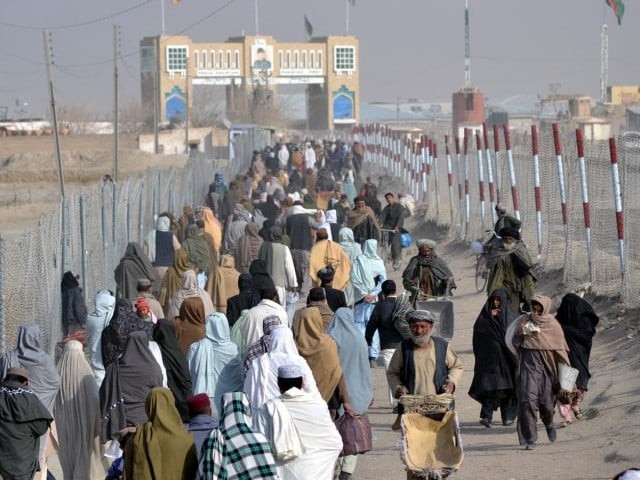A bleak life for refugees
There are approximately 2.5 million Afghan refugees and they are nowadays far from welcome

PHOTO: INP
The government would be delighted if they decamped back to their homeland, but there are few that are taking that option. Afghanistan is, for many of them, a foreign land. They have no connection to it in real terms, no jobs or homes there and their ancestral lands or homes have long ago been subsumed or been destroyed in the conflict that led them to be in Pakistan in the first place. Their unpopularity has increased in the 11 months since the attack on the Army Public School in Peshawar in December 2014, and now Human Rights Watch (HRW) has released a damning report on the brutality that Afghans face at the hands of the police and security services in Pakistan.
The report by HRW was compiled by interviewing both documented and undocumented Afghans, some in Kabul as they passed through the registration process, others in Pakistan. All cited police hostility and harassment as their reason for leaving. They detailed raids on their settlements, the demolition of houses with no prospect of other accommodation being available, the harassment of businesses and the payment of bribes to the police to prevent the harassment. Many interviewed in Kabul said they had left Pakistan because they were no longer able to afford to pay the bribes and extortionate demands of the police.
The HRW report makes a number of key recommendations to both the Pakistan and Afghan governments, some of which come with urgency attached as the cards carried by registered Afghans expire in six weeks at the end of December 2015. If the Pakistan government decides not to extend the cards to the end of 2017 as recommended, there are the makings of a massive humanitarian crisis as Afghanistan will have to absorb a very large number of people decanted by Pakistan if it chooses to expel the refugees forcibly. The report recommends that there be a specific written directive to the police and security services to cease their harassment of Afghans, to stop illegal surveillance, intimidation and violence.
Unfortunately, there is little possibility that either the Pakistan or the Afghan governments are going to be moving on the HRW recommendations. The Afghan government has few resources anyway and is heavily reliant on entities such as the United Nation’s High Commission for Refugees (UNHCR) for financial and material support in the matter of refugees and displaced persons. The Pakistan government, whilst it does work closely with the UNHCR and external donor agencies and entities, has long wanted an end to what it sees as both an encumbrance and an impediment to development as well as a significant threat to internal security.
The HRW report lays out in stark detail the misery endured by the Afghans hosted in Pakistan. There is no reason to doubt the veracity of the report. The reality is that 2.5 million Afghans urgently need a resolution to their dreadful plight, and the report is a ‘to do’ list for those whose responsibility it is to resolve this humanitarian conundrum.
Published in The Express Tribune, November 19th, 2015.














COMMENTS
Comments are moderated and generally will be posted if they are on-topic and not abusive.
For more information, please see our Comments FAQ